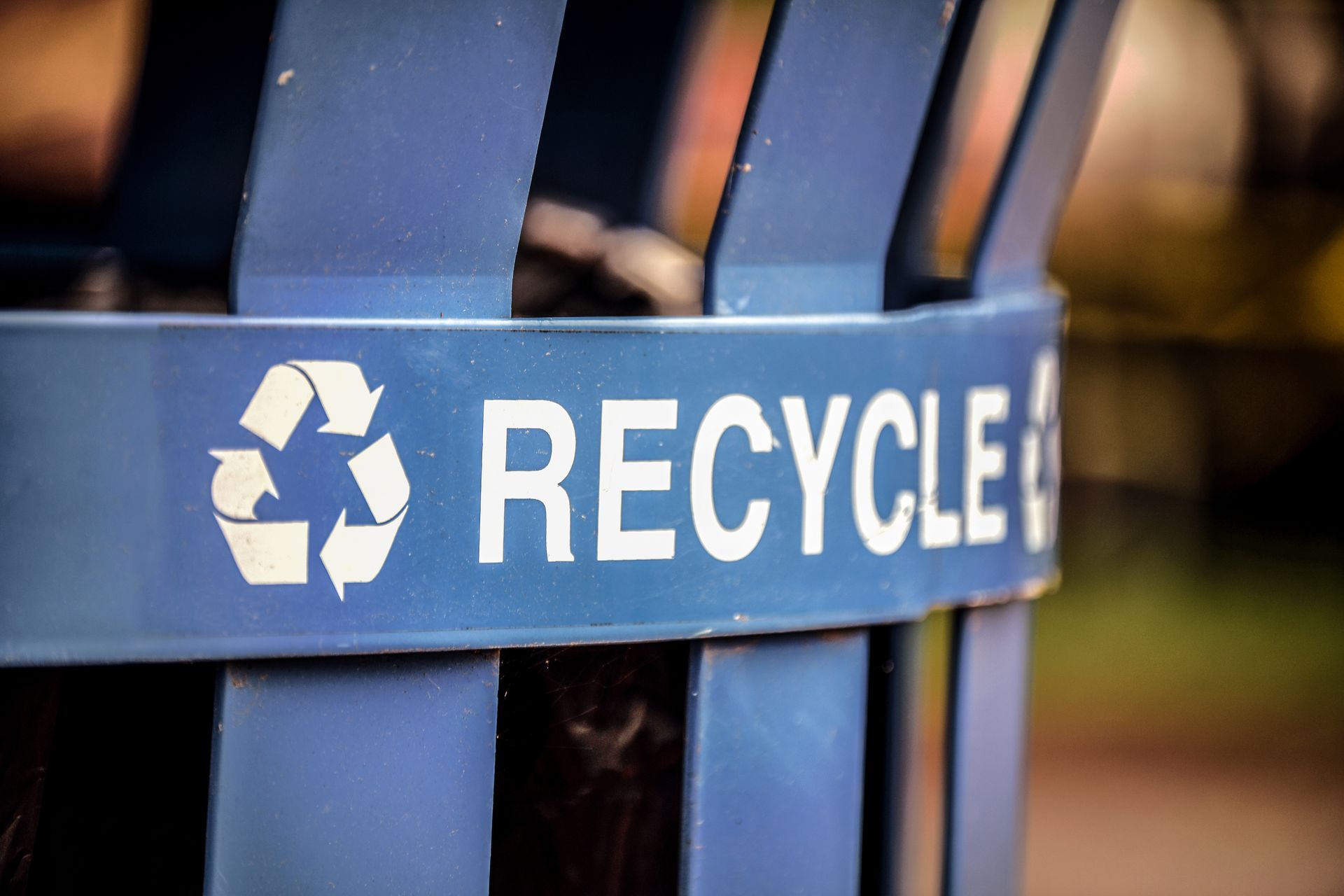Top 5 Data Challenges in Recycling Operations
Recycling operations are essential for reducing waste, conserving resources and protecting the environment. However, recycling operations also face many data challenges that prevent them from capitalizing on the circular economy. The circular economy is a system where materials and products are reused, repaired and recycled, minimizing waste and maximizing value. To achieve this, recycling operations need to have access to reliable, accurate and timely data on their processes, materials and markets.
One of the root causes of data challenges in recycling operations is disconnected data sources. Recycling operations often rely on multiple systems and platforms to collect, store and analyze data from different stages, such as collection, transportation, sorting, and processing. These systems may not be compatible or integrated, leading to data silos, duplication, and inconsistency. This makes it difficult for recycling operations to have a holistic view of their performance, identify opportunities for improvement and respond to changing market conditions.
1. Recycling Program Data Silos Restrict Oversight and Reporting
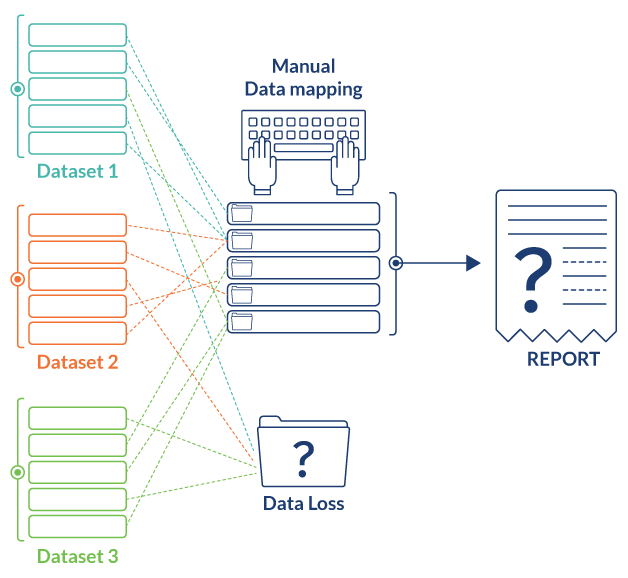
Data silos are a primary challenge in recycling operations and occur when different departments, systems or stakeholders have access to different or incomplete data sets. This problem hinders communication, collaboration, and decision-making across the entire recycling value chain.
For example, collectors need access to real-time information about material types, quantities, and locations to increase efficiency and reduce costs. Similarly, processors need access to accurate data about material quality, composition, and demand to avoid producing low-value products or incurring unnecessary expenses. Other participants, such as producers, stewards, or PROs, may need access to data across the supply chain for reporting and auditing.
Data silos can also affect compliance and reporting requirements for recycling operations. Regulatory agencies across North America and around the world are legislating for more detailed information on recycling activities than ever before. This data is essential for:
- ensuring accountability
- supporting the shift towards Extended Producer Responsibility (EPR)
- Measuring reductions in greenhouse gas emissions and carbon footprints
- seizing the economic opportunities of environmental circularity – everything from gross value add to job creation.
Recycling operations may struggle to meet these demands and without a centralized and standardized data platform there is an increased risk of penalties and fines.
2. Lack of Data Capture Standardization and Transparency Complicate Recycling Rate Tracking
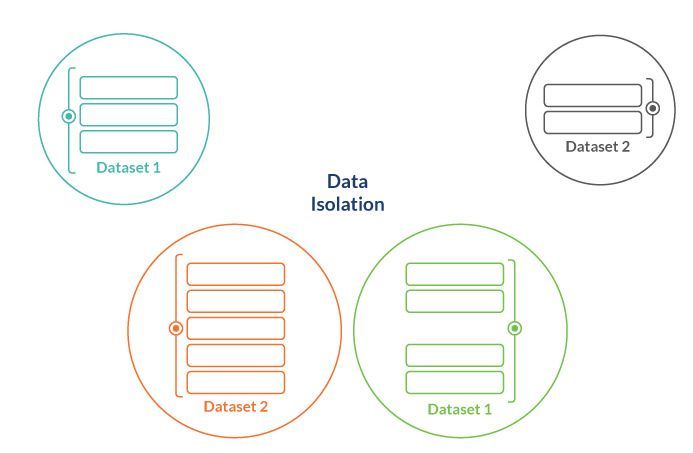
Another data challenge in recycling operations is the need for more standardization and transparency across different data sources. Recycling operations often rely on multiple systems or vendors for collecting data. However, these systems may use different formats, definitions or metrics for measuring key performance indicators (KPIs) such as material type, volume, diversion rates, contamination rates or greenhouse gas emissions. This can lead to inconsistencies, errors or data quality and accuracy discrepancies.
These data variances mean recycling participants lack visibility into their data and their partners' data. For instance:
- Collectors may not know how much material they are delivering to processors or where it ends up;
- Processors may not know how much material they are receiving from collectors or where it is from;
- Re-manufacturers may not know how much recycled content they are buying or what environmental benefits they are generating;
- Producers may not get an accurate picture of the effectiveness of the recycling program they are funding to meet their EPR obligations;
- Governments and regulators may not get the visibility needed to understand legislative effectiveness, make funding decisions, or pursue enforcement.
This lack of transparency can undermine stakeholders' trust and accountability, limiting improvement opportunities.
3. Variances in Recycling Data Quality and Accuracy
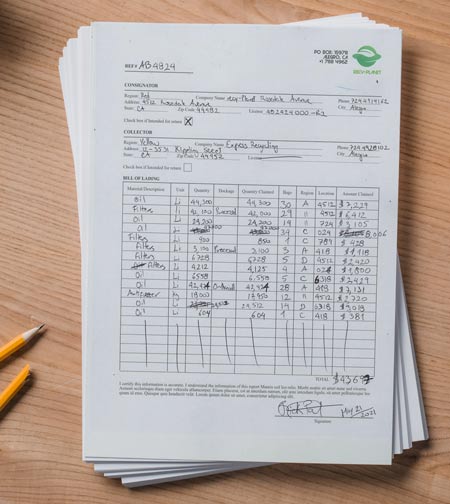
A third data challenge in recycling operations is ensuring the quality and accuracy of the data collected and used. Recycling operations deal with complex and dynamic waste streams that vary in composition, volume and value depending on factors such as seasonality, weather conditions, consumer behaviour, or market demand. Therefore, recycling operations need reliable and precise methods for capturing and validating data at every stage, from source separation to final disposition.
However, many recycling operations still rely on manual or outdated methods for collecting and reporting data, such as paper forms, spreadsheets, or visual inspections. These methods are prone to human error, bias, fraud or manipulation, resulting in inaccurate or incomplete data.
For example, if collectors do not record their loads correctly, they may overestimate or underestimate their diversion rates; if processors do not test or verify their material, they may produce low-quality products that do not meet specifications; if producers do not track their recycling programs accurately, they may inadvertently make false claims about their sustainability efforts.
4. Data Trust and Validation Missing from the Recycling Value Chain

Recyclers must ensure their data is trustworthy and validated by following industry standards and best practices. However, disconnected data sources can compromise trust and validation by creating gaps or errors in data collection, transmission and storage. This can expose recycling operations to legal risks, financial losses and reputational damage.
A significant environmental problem caused by a lack of trust and validation is the contamination of recycled materials by hazardous substances or non-recyclable items. This can reduce the value of recycled materials or make them unsuitable for further use. A lack of trust and validation can also lead to inaccurate reporting or billing of recycled materials by source, weight, volume, or quality. This can result in an overpayment, underpayment, or even poisoning of the supply chain when contaminated material types are processed incorrectly.
5. The Hidden Costs of Failing to Operationalize Data from Recycling Operations
Recycling operations need to be able to operationalize their data by turning it into actionable insights that can improve their efficiency, effectiveness and profitability. Disconnected data sources prevent operationalization by limiting access, visibility and data analysis across different systems. This can stop recycling operations from making informed decisions, adjusting strategies and solving problems.
The inability to operationalize data creates inefficiency in recycling processes and can increase greenhouse gas emissions, fuel consumption and operating costs. This can result in a loss of competitiveness and restrict a recycler's ability to innovate, adapt, or differentiate. That means a market share reduction, negatively impacting customer satisfaction, or even prohibiting the business from pursuing revenue growth opportunities.
Consolidating Recycling Data to Capitalize on the Circular Economy

The solution to the data challenges in recycling operations lies in consolidating data sources and standardizing data capture. By integrating data from different systems and devices, recycling operators can gain a holistic view of their processes, performance, and impact. Adopting standard data formats and protocols can ensure consistency, transparency, and accuracy across recycling data streams.
Consolidating and standardizing data can bring environmental and business benefits to recycling operations. It can also help measure waste generation, improve resource efficiency, optimize logistics, enhance customer service, and increase profitability. Consolidating data supports compliance with regulations, reporting requirements, and sustainability goals and is essential for capitalizing on the circular economy.
Technology and software are critical enablers for data consolidation and standardization. Cloud-based platforms can collect, store, analyze, and visualize data from multiple sources. It can help recycling operators transform their business models, create new value propositions, and deliver better outcomes for their customers and the environment.
Commercial Recycling Tracking Software to Overcome Data Challenges
Data silos, lack of standardization and transparency, quality and accuracy issues, trust and validation problems, and inability to operationalize data are significant obstacles that prevent recycling programs from capitalizing on the circular economy. These challenges also restrict industry participants, negatively impacting their efficiency, transparency, and profitability.
At Diversys, we provide industry participants with a quick-to-implement, easy-to-use cloud-based software platform to digitally transform recycling operations. Diversys equips organizations with the ability to track, manage, and report on their waste collection and recycling activities in real-time, enabling them to achieve reporting and compliance requirements for ESG (Environmental Social Governance) and EPR (Extended Producer Responsibility) targets. Diversys also streamlines auditing capabilities through a single, easy-to-use platform that can be quickly implemented.
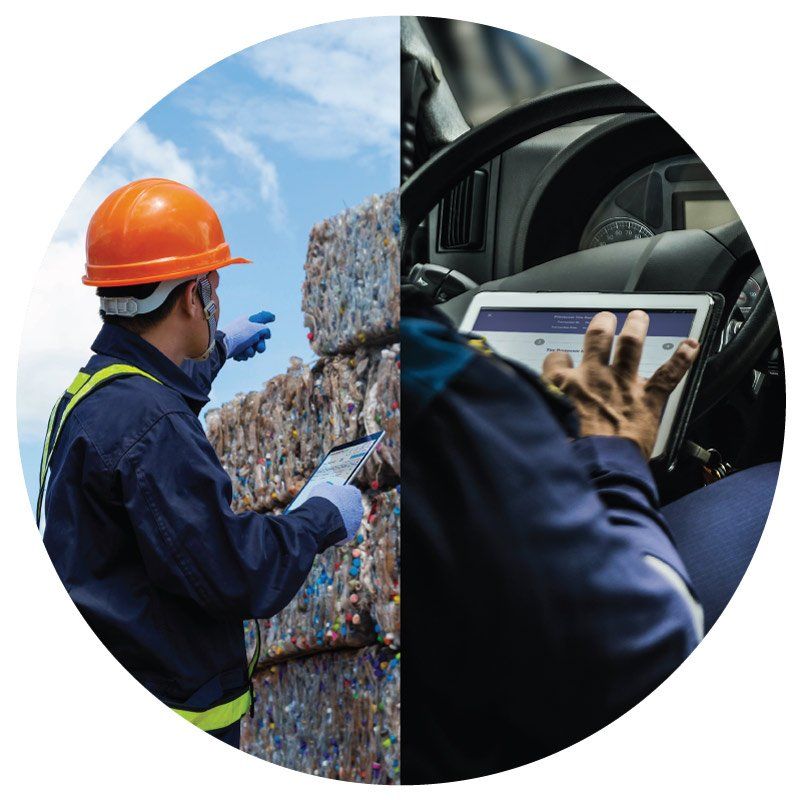
Overcoming data issues in the recycling industry is essential for demonstrating and improving environmental impact from various programs across waste streams and jurisdictions. Using commercial recycling tracking software, recycling operations optimize program performance and outcomes, improve business processes, and enhance program reporting and auditing capabilities.
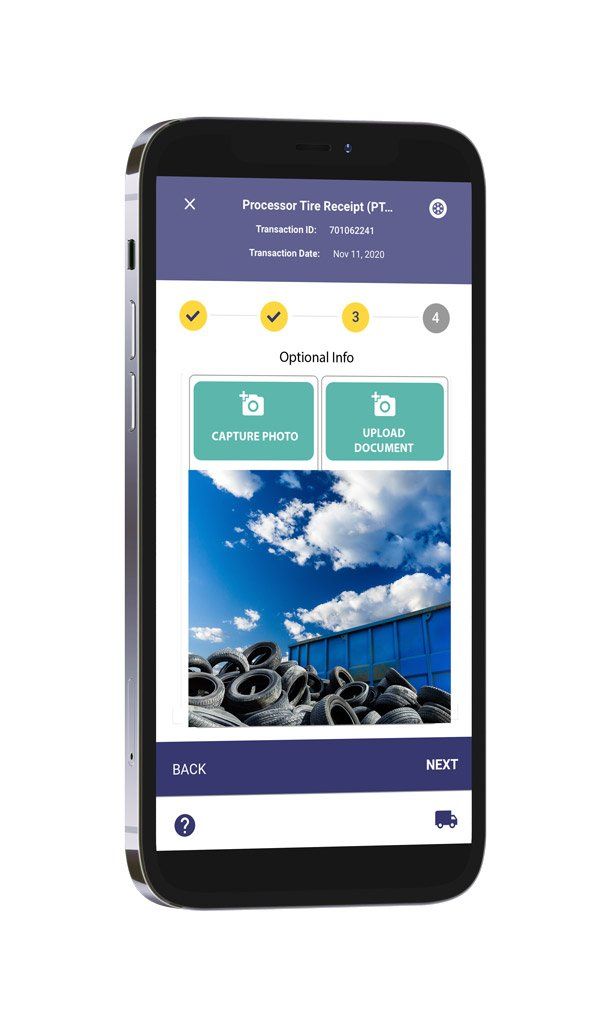
About Diversys
Diversys is proud to have its roots in Ontario, Canada - a province widely recognized for its leadership in EPR and sustainability. Since 2019, we've been dedicated to creating innovative software solutions that drive progress toward a world without waste.
Our story is a testament to the power of hard work, customer loyalty, and big ideas. We are committed to empowering organizations with the waste recycling software solutions necessary for achieving a sustainable future. Our cutting-edge software platform is helping organizations achieve their ESG goals, meet reporting obligations, and improve operational efficiency for their recycling programs.
Our commitment to delivering world-class solutions that drive meaningful progress towards waste reduction and a more sustainable future is unwavering. Our team of industry experts is ready to help you navigate the rapidly-evolving waste management landscape as we progress toward a circular economy.


